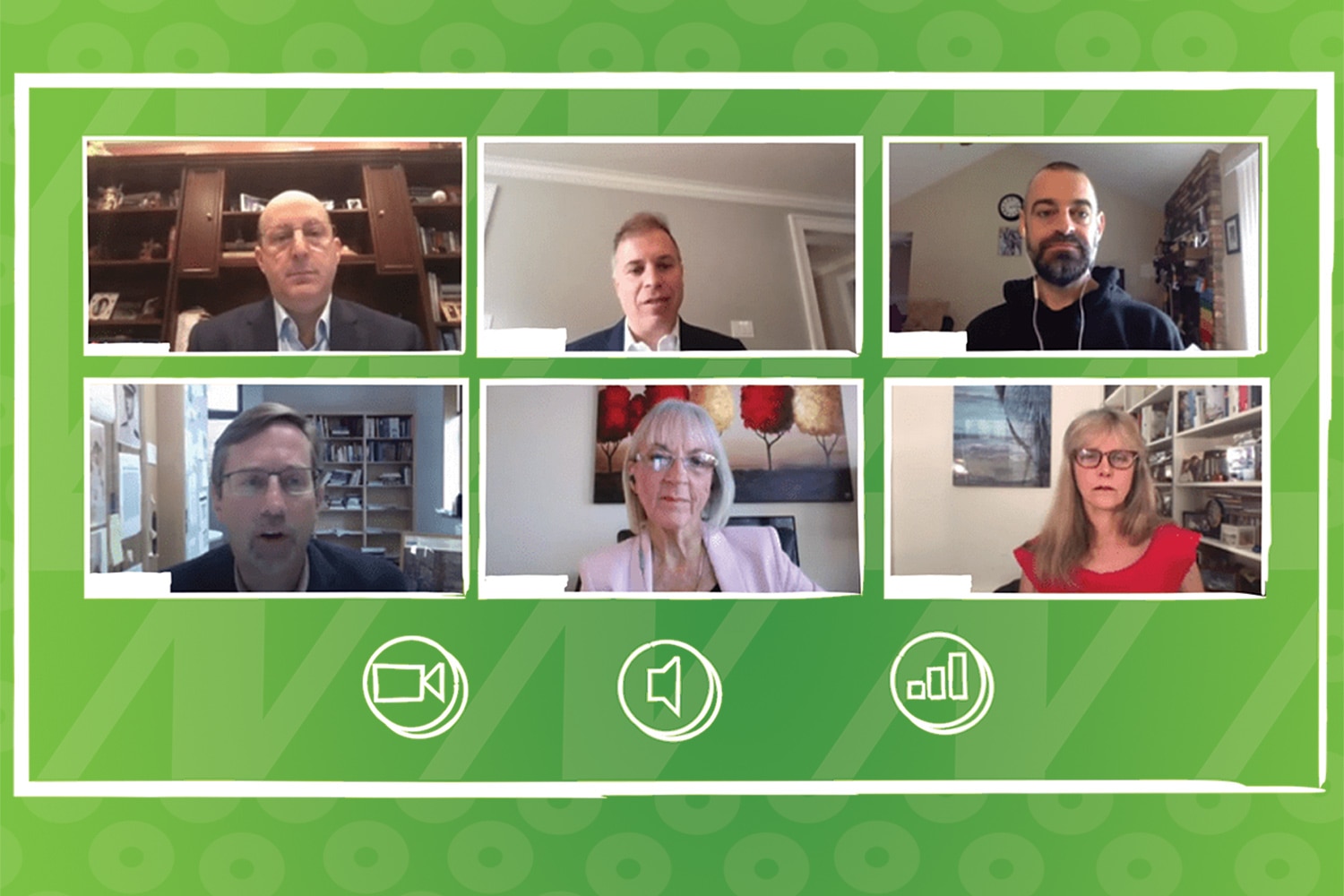DESPITE LIVING UNDER THE CLOUD OF COVID-19 for nearly seven months, with no quick end in sight, cancer patients and survivors in the U.S. can see some bright spots, according to panelists taking part in the “AACR Virtual Patient Advocate Forum: COVID-19 and Cancer.” The Oct. 1 event was the first of a series of patient advocate forums planned by the American Association for Cancer Research (AACR), which also publishes Cancer Today.
Surgical oncologist Steven K. Libutti, director of the Rutgers Cancer Institute of New Jersey in New Brunswick, said that cancer patients are being treated safely at his facility. “We have not seen a significant increase in COVID diagnoses in cancer patients under active treatment. We know how to stop the virus,” he said, citing measures like social distancing and wearing face masks.
“You should not sequester yourself to the point of not getting treatment,” he said. “We can provide safe environments for people seeking care.”
For More Information
Read more coverage here from Cancer Today on the various impacts of the coronavirus on people with cancer.
Laura Esserman, a surgical oncologist at the University of California, San Francisco, Carol Franc Buck Breast Care Center, reminded listeners that while COVID-19 has received the lion’s share of attention since March, “there’s still urgency in cancer, and we shouldn’t lose sight of that.”
Esserman shared statistics demonstrating that the benefit of detecting breast cancer from a mammogram far outweighs the risk of contracting COVID-19 from a screening. As an example, 1 to 3 women per 100,000 screened will contract COVID-19 from mammogram appointments, she said, whereas screening for breast cancer can reveal 500 to 700 cancers per 100,000 women age 65.
According to Avrum Spira, global head of the Lung Cancer Initiative at Johnson & Johnson and director of the Boston University-Boston Medical Center Cancer Center, treatments for seriously ill COVID-19 patients have improved since March. Spira treated COVID-19 patients over three rotations in the hospital’s intensive care unit in March, April and May. “If you were to get infected, outcomes are getting better,” Spira said. “Mortality rates are going to continue to drop.”
Another reason for hope is continued progress toward safe and effective COVID-19 vaccines. There are four phase III clinical trials underway in the U.S. for a COVID-19 vaccine, said Spira, with more phase III trials likely to open in the near future. The more vaccines in development, the better, he said.
We re going to need multiple shots on goal to develop the most effective and safe vaccine, he said, adding that I m very confident that we re going to beat this virus.
But an effective vaccine hinges on clinical trials that are representative of the broad range of people who will eventually receive it. According to cancer biologist David Tuveson, director of the Cold Spring Harbor Laboratory Cancer Center in New York and current AACR president-elect, research has revealed that genetic factors could account for some differences in how various ethnic and racial minority populations respond to COVID-19. Several panelists called for increased participation of these populations in COVID-19 clinical trials.
Anna Barker, who moderated the live panel discussion that ended the program, added that not only should underrepresented minorities be recruited to COVID-19 clinical trials, but that once safe and effective vaccines are developed, efforts need to be made to overcome skepticism and mistrust of the health care system by members of these and other communities.
Cancer patients have not been included in COVID-19 clinical trials, so it’s not known yet whether having cancer or undergoing treatments would alter the safety or effectiveness of a vaccine. Spira and others urged patient advocates participating in the forum to be vocal in supporting inclusion of cancer patients in these trials, a call seconded by patient advocate and brain cancer survivor Adam Hayden.
“Raise your voices to be sure eligibility criteria are inclusive of our community,” Hayden said.
Cancer Today magazine is free to cancer patients, survivors and caregivers who live in the U.S. Subscribe here to receive four issues per year.





